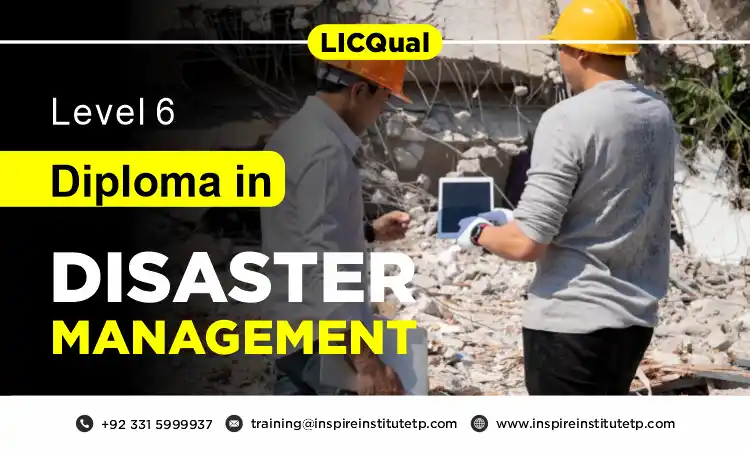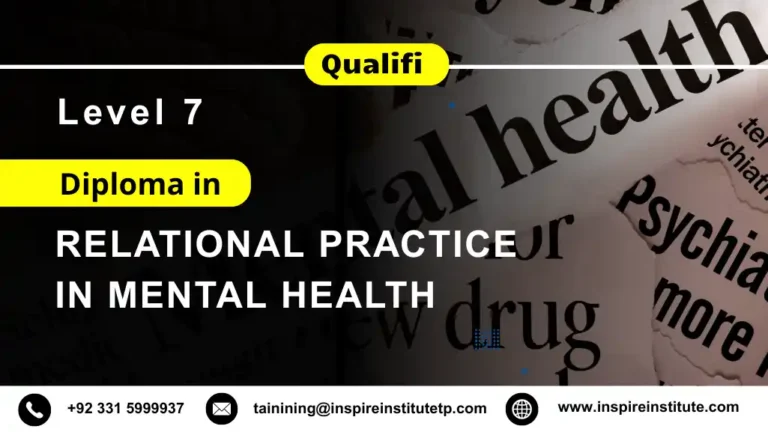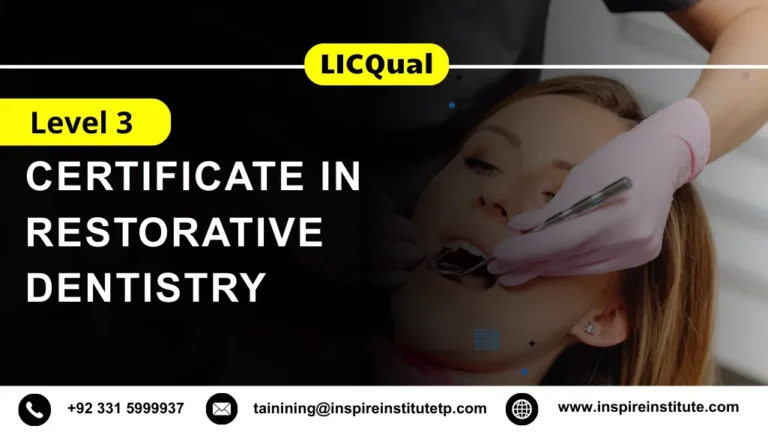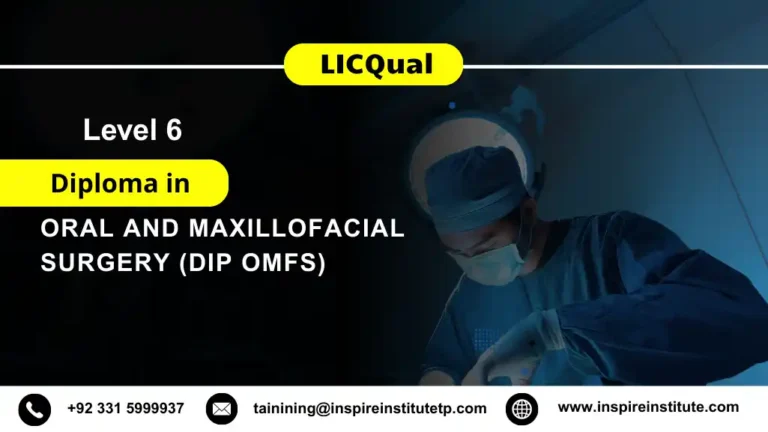LICQual Level 7 Postgraduate Diploma in Travel Medicine (PgDTM)
The LICQual Level 7 Postgraduate Diploma in Travel Medicine (PgDTM) is a prestigious UK-accredited qualification designed for healthcare professionals, travel health specialists, and medical practitioners seeking to advance their expertise in global health, infectious disease prevention, and international patient care. As international travel continues to expand rapidly, the demand for qualified professionals capable of managing travel-related health risks has never been greater. This diploma equips learners with the advanced medical knowledge and practical competencies required to deliver safe, effective, and evidence-based travel medicine services worldwide.
The PgDTM qualification provides a comprehensive understanding of the epidemiology of travel-related diseases, vaccination protocols, tropical medicine, and preventive healthcare strategies. Learners explore the global patterns of infectious diseases, emerging public health threats, and country-specific health risks, preparing them to guide and protect travellers in various environments. The course’s structured curriculum ensures mastery of both clinical and advisory aspects of travel medicine, enhancing professional confidence and competence.
The course also emphasises leadership and communication skills, vital for professionals involved in international healthcare, occupational travel health, and medical advisory roles. Learners become proficient in counselling travellers, advising on immunisations, and developing workplace travel health policies for corporate and governmental organisations. The programme encourages the integration of ethics, cultural awareness, and global health standards into medical practice.
Why Choose this Qualification
The LICQual Level 7 Postgraduate Diploma in Travel Medicine (PgDTM) offers an advanced academic and professional platform for healthcare practitioners aspiring to specialise in global travel health, infectious disease prevention, and international medical advisory roles. This UK-accredited postgraduate diploma combines evidence-based knowledge with real-world application, equipping learners to provide effective, safe, and ethical travel medicine services. Designed for doctors, nurses, and public health professionals, this qualification enhances both clinical competence and leadership within the evolving field of travel medicine.
Key Reasons to Choose this Qualification
1. Comprehensive Understanding of Global Travel Health
- Gain in-depth knowledge of the principles and practices of travel medicine and global health protection.
- Understand the epidemiology, transmission, and control of travel-related and tropical diseases.
- Learn to conduct pre-travel health assessments and risk evaluations for various travel destinations.
- Acquire expertise in vaccination strategies, chemoprophylaxis, and infection prevention protocols.
- Develop the ability to design and implement travel health programs for individuals and organisations.
2. Evidence-Based Clinical Decision-Making
- Strengthen skills in analysing clinical data and applying evidence-based guidelines.
- Learn to evaluate global disease patterns and adapt preventive strategies accordingly.
- Apply WHO and CDC recommendations to ensure international health compliance.
- Develop confidence in assessing complex travel health cases and medical emergencies.
- Enhance the ability to create data-driven, patient-centred travel care plans.
3. Practical Skills and Applied Learning
- Engage in real-world case studies and simulations focusing on travel health and tropical disease management.
- Gain hands-on experience in managing post-travel illnesses, vector-borne infections, and vaccination reactions.
- Learn to perform and interpret diagnostic tests relevant to infectious disease control.
- Acquire practical insights into pre- and post-travel clinical consultations.
- Build confidence in providing emergency travel health advice and interventions.
4. Internationally Recognised Qualification
- Earn a UK-accredited postgraduate diploma respected across healthcare systems worldwide.
- Enhance career prospects in global organisations, hospitals, travel clinics, and research institutions.
- Demonstrate a high level of professional competence and clinical credibility.
- Align your expertise with international standards set by professional travel medicine associations.
- Position yourself as a qualified and trusted advisor in international healthcare.
5. Flexible and Professional Learning Model
- Study through a flexible, assignment-based approach tailored for working professionals.
- Balance education with existing professional and personal commitments.
- Access online learning materials, research resources, and guided mentorship.
- Progress at your own pace with structured academic support.
- Participate in a collaborative, international learning environment.
6. Advanced Research and Analytical Skills
- Develop the ability to conduct critical research in travel medicine and global health.
- Learn to evaluate public health policies and global disease surveillance systems.
- Engage with current literature to stay updated on travel-related medical advancements.
- Apply research findings to improve clinical practice and patient safety.
- Build a strong academic foundation for further postgraduate or doctoral studies.
7. Career Advancement Opportunities
- Unlock opportunities in travel health clinics, international organisations, and public health sectors.
- Qualify for roles such as Travel Health Consultant, Medical Advisor, or Global Health Specialist.
- Enhance your leadership and management capabilities in healthcare.
- Build a professional profile aligned with global travel and tropical medicine needs.
- Gain eligibility for senior roles requiring international medical expertise.
8. Commitment to Ethical and Patient-Centred Practice
- Understand the ethical and legal frameworks governing global medical practice.
- Promote patient-centred care, cultural sensitivity, and informed decision-making.
- Develop effective communication and counselling techniques for travellers.
- Integrate environmental, social, and ethical considerations into travel health policies.
- Advocate for sustainable, equitable, and responsible healthcare practices globally.
The LICQual Level 7 Postgraduate Diploma in Travel Medicine (PgDTM) is an exceptional pathway for professionals aspiring to make an impact in global health and travel medicine. Through advanced theoretical learning, applied clinical training, and international recognition, this qualification empowers graduates to deliver safe, evidence-based, and ethical healthcare to travellers worldwide. It not only enhances career progression but also contributes significantly to global public health standards and disease prevention initiatives.opment, clinical competence, and healthcare excellence globally.
Course Overview
LICQual UK Awarding Body
Average Completion Time:
6-24 Months
Study Units: 6 Units
Evidence & Assignment Based
Mandatory Units
Who Should Take This Course
The LICQual Level 7 Postgraduate Diploma in Travel Medicine (PgDTM) is designed for healthcare professionals who aspire to specialise in global health, infectious disease prevention, and traveller safety. This UK-accredited postgraduate diploma is ideal for individuals seeking to enhance their expertise in travel medicine, epidemiology, and public health management. It is particularly suited for practitioners who wish to expand their role in international health advisory services, travel clinics, occupational health, and tropical medicine. The course provides an excellent opportunity to develop clinical, analytical, and leadership skills that align with global healthcare standards and patient safety protocols.
This course is suitable for
1. Medical Practitioners and Physicians
- Ideal for doctors seeking to specialise in travel medicine, infectious diseases, or tropical medicine.
- Enables practitioners to provide comprehensive pre- and post-travel health consultations.
- Equips physicians with knowledge of vaccination protocols, global disease surveillance, and patient risk assessment.
- Enhances the ability to diagnose and manage travel-related illnesses effectively.
- Strengthens leadership and advisory skills for roles in international health organisations.
2. Nurses and Allied Health Professionals
- Suitable for registered nurses and allied health practitioners involved in traveller health education and care delivery.
- Develops advanced understanding of infection control, immunisation schedules, and disease prevention strategies.
- Enhances communication and counselling skills for advising travellers on health precautions.
- Builds competence in emergency response and travel-related medical assessments.
- Promotes evidence-based practice for improving traveller health and wellbeing.
3. Public Health Specialists and Epidemiologists
- Designed for professionals working in epidemiology, disease control, and population health management.
- Provides tools for evaluating global disease trends and developing preventive health strategies.
- Equips learners to interpret and apply WHO, CDC, and international health regulations.
- Strengthens the ability to coordinate public health interventions for travellers and expatriates.
- Builds expertise in risk communication and outbreak management.
4. Travel Health and Occupational Health Professionals
- Ideal for those employed in corporate travel health, aviation medicine, or occupational safety.
- Enables professionals to design and implement workplace travel health policies.
- Develops skills to assess and mitigate travel-related risks for employees and global travellers.
- Equips learners to manage travel-related medical emergencies and repatriation cases.
- Strengthens capability in occupational disease prevention and health promotion.
5. Pharmacists and Clinical Researchers
- Suitable for pharmacists interested in travel vaccines, antimalarial drugs, and prophylactic therapies.
- Develops expertise in global pharmaceutical standards and patient medication counselling.
- Encourages participation in research and clinical trials related to travel medicine.
- Builds analytical skills for evaluating medication safety and effectiveness.
- Supports career advancement in academic, clinical, and research settings.
6. Military and Humanitarian Health Workers
- Tailored for medical professionals serving in military, humanitarian, or NGO health missions.
- Prepares learners to handle complex travel and tropical health issues in challenging environments.
- Builds resilience and adaptability in managing infectious disease outbreaks abroad.
- Enhances cultural competence and global health diplomacy skills.
- Equips professionals to lead emergency health interventions in international operations.
7. Healthcare Managers and Administrators
- Designed for leaders managing travel health clinics, hospitals, or international healthcare facilities.
- Provides strategic insight into clinical governance and risk management in travel medicine.
- Equips managers to establish operational frameworks for global health services.
- Enhances leadership, policy development, and quality improvement capabilities.
- Encourages integration of ethical and sustainable practices in healthcare delivery.
8. Aspiring Academics and Educators in Travel Medicine
- Suitable for medical educators aiming to teach or develop academic programs in travel medicine.
- Enhances curriculum design and instructional strategies for higher medical education.
- Encourages engagement in global research, publication, and knowledge dissemination.
- Provides the academic foundation for doctoral or higher research pursuits.
- Builds credibility as a subject matter expert in international travel and public health education.
In conclusion, the LICQual Level 7 Postgraduate Diploma in Travel Medicine (PgDTM) is an ideal qualification for medical and healthcare professionals committed to promoting global health safety and traveller wellbeing. Whether you are a clinician, public health expert, or educator, this diploma offers the specialised knowledge, analytical skills, and international recognition needed to excel in the field of travel medicine. Graduates emerge as confident, competent, and globally aware professionals ready to make meaningful contributions to public health and international medical care.
Course Benefits
The LICQual Level 7 Postgraduate Diploma in Travel Medicine (PgDTM) is a UK-accredited qualification designed for healthcare professionals, travel medicine practitioners, and public health specialists who aspire to advance their expertise in managing health risks associated with international travel. This comprehensive, assignment-based postgraduate diploma integrates theoretical knowledge with practical applications, preparing learners to assess, prevent, and manage travel-related diseases while promoting global health and safety. Through evidence-based learning and flexible study pathways, the qualification equips professionals to deliver expert travel health advice, enhance preventive care, and strengthen international medical preparedness.
Key Benefits of the Course
- Specialist Knowledge:
Gain advanced insight into travel medicine, infectious diseases, tropical medicine, epidemiology, and immunisation practices. Learners explore topics such as vector-borne diseases, travel vaccinations, environmental health risks, and post-travel illness management. The course also focuses on global health surveillance, pre-travel consultations, and travel health policy development, ensuring learners acquire specialist expertise in preventive and clinical travel health management. - Practical Application:
Develop clinical competence through case-based assignments, applied research, and real-world simulations. Learners enhance their ability to conduct travel health risk assessments, recommend immunisation and prophylaxis protocols, and manage travellers with complex health conditions. The diploma promotes practical skills in travel-related disease prevention, emergency response planning, and occupational health support for international travellers. - Recognised Qualification:
Earn a prestigious UK-accredited Postgraduate Diploma in Travel Medicine (PgDTM) that validates your advanced knowledge and global competencies. The qualification aligns with international health and travel medicine standards, enhancing employability in healthcare institutions, public health agencies, international organisations, and private travel clinics. - Flexible Learning Pathway:
Designed for working professionals, this assignment-based programme offers flexibility to balance study, career, and personal commitments. Learners benefit from comprehensive digital learning resources, academic mentorship, and structured guidance, enabling self-paced progress and effective integration of learning into professional practice. - Evidence-Based Training:
Engage with the latest research, global health guidelines, and emerging trends in infectious disease control and travel health management. The programme cultivates analytical and critical thinking skills, enabling learners to evaluate epidemiological data, apply evidence-based interventions, and enhance public health preparedness. - Career Development:
Unlock global career opportunities in travel medicine clinics, hospitals, public health departments, research institutions, and international NGOs. Graduates may pursue roles such as Travel Medicine Consultant, Public Health Specialist, Occupational Health Advisor, or Global Health Coordinator. The diploma also provides a solid foundation for further postgraduate or fellowship training in travel or tropical medicine. - Enhanced Public Health Impact:
Contribute to global health improvement through disease prevention, traveller education, and international health risk reduction. The course empowers learners to promote safe travel practices, manage emerging health threats, and support governments and organisations in developing effective travel health policies and preventive programmes. - Professional Growth:
Strengthen leadership, research, communication, and cross-cultural collaboration skills essential for international healthcare. The diploma fosters reflective practice, ethical responsibility, and evidence-informed decision-making. Graduates emerge as globally competent professionals capable of leading travel medicine programmes, conducting research, and shaping the future of global health.
The LICQual Level 7 Postgraduate Diploma in Travel Medicine (PgDTM) empowers healthcare professionals to become leaders in travel and tropical health through advanced clinical knowledge, practical expertise, and internationally recognised credentials. It supports professional growth, enhances global healthcare delivery, and contributes to improving health outcomes for travellers worldwide.
Eligibility Criteria
The LICQual Level 7 Postgraduate Diploma in Travel Medicine (PgDTM) is a UK-accredited, assignment-based qualification designed for healthcare professionals, travel medicine specialists, public health experts, and medical practitioners aiming to advance their expertise in the field of travel and tropical medicine. This postgraduate diploma combines theoretical knowledge with applied clinical practice, enabling learners to assess, plan, implement, and evaluate healthcare measures related to travel health, disease prevention, and international medical risk management effectively.
Educational Background:
Applicants should hold a recognised qualification in medicine, nursing, healthcare, or a related clinical or public health discipline. A Level 6 diploma or equivalent qualification in healthcare management, medical sciences, or public health may also be accepted. Candidates with international degrees in medicine, travel medicine, or allied health sciences will be evaluated individually to determine eligibility and equivalence to UK standards.
Professional Experience:
A minimum of one year of professional experience in healthcare, clinical practice, public health, or a related medical field is recommended. Prior exposure to travel health services, immunisation programmes, or infectious disease control provides an advantage. However, motivated applicants with a keen interest in travel medicine, epidemiology, and international health management are also encouraged to apply, even without direct field experience.
Age Requirement:
Applicants must be at least 18 years old at the time of enrolment. This ensures that learners possess the maturity, professional ethics, and responsibility required for advanced postgraduate study and clinical application in travel medicine.
Language Proficiency:
As the programme is taught entirely in English, learners must demonstrate proficiency in reading, writing, and communication. For non-native English speakers, a minimum IELTS score of 6.0 or an equivalent qualification is recommended to ensure effective participation in assignments, discussions, and assessments.
Technical Requirements:
Learners should have access to a computer or laptop with a reliable internet connection to engage in online learning, access study materials, and submit assignments. Competence in basic computer skills—such as research, data handling, document preparation, and communication tools—is essential for success in this postgraduate programme.
Required Documents:
Applicants are required to submit the following documents during registration:
A valid ID card or passport for identity verification.
Academic transcripts or certificates of previous qualifications.
Proof of professional experience in healthcare, clinical practice, or public health (if applicable).
The Qualification Process
LICQual Level 7 Postgraduate Diploma in Travel Medicine (PgDTM) follows a structured pathway to ensure learners gain comprehensive knowledge, practical skills, and professional competence in community oral healthcare.
Step 1: Self-Assessment
Learners review the entry requirements to confirm eligibility. Candidates with a background in dentistry, oral health, or public health are encouraged to apply.
Step 2: Registration
Complete the registration process by submitting required documents such as proof of qualifications, a valid ID, and payment of enrollment fees.
Step 3: Induction
An induction session is conducted to:
- Verify learner eligibility and documentation.
- Introduce study materials, learning outcomes, and assessment procedures.
Step 4: Learning and Evidence Submission
Learners complete assignments, case studies, and practical exercises demonstrating competence in public health dentistry, community oral health assessment, preventive strategies, and program planning.
Step 5: Feedback and Revision
Assessors review submitted evidence and provide constructive feedback. Learners can revise and resubmit work to meet all required standards.
Step 6: Competence Validation
Final submissions are evaluated to confirm that learners have met all theoretical and practical learning outcomes.
Step 7: Internal Quality Assurance (IQA)
The IQA team reviews the assessment process to ensure accuracy, fairness, and compliance with international standards.
Step 8: External Verification (EQA)
External verifiers validate the authenticity and quality of learner achievements.
Step 9: Certification
Upon successful verification, learners are awarded LICQual Level 7 Postgraduate Diploma in Travel Medicine (PgDTM), demonstrating advanced proficiency in community oral healthcare and preparing them for professional growth in dental public health, preventive dentistry, and healthcare policy.







